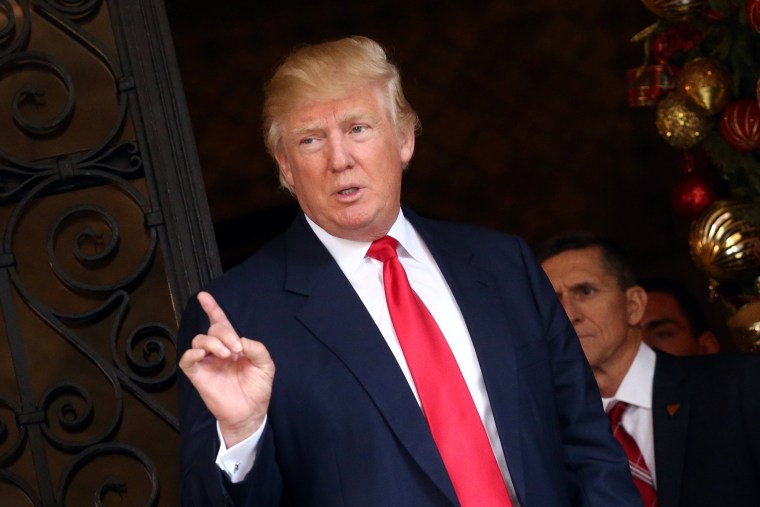The fact that Donald Trump continues to talk incessantly about the election from three months ago doesn't bother me. The fact that Donald Trump continues to embrace and repeat delusional conspiracy theories about the election worries me a great deal.
On Thursday, during a meeting with 10 senators that was billed as a listening session about Supreme Court nominee Neil Gorsuch, the president went off on a familiar tangent, suggesting again that he was a victim of widespread voter fraud, despite the fact that he won the presidential election.As soon as the door closed and the reporters allowed to observe for a few minutes had been ushered out, Trump began to talk about the election, participants said, triggered by the presence of former New Hampshire Sen. Kelly Ayotte, who lost her reelection bid in November and is now working for Trump as a Capitol Hill liaison, or "Sherpa," on the Supreme Court nomination of Judge Neil Gorsuch.
According to the Politico article, the president told attendees that he and Ayotte would have won New Hampshire -- both narrowly lost in reality -- were it not for "thousands" of "illegally" cast ballots. Trump reportedly added that he believes these voters were "brought in on buses" from neighboring Massachusetts.There was, according to one of Politico's sources, "an uncomfortable silence" in the room after Trump made the comment.Which is the proper response under the circumstances. As MSNBC's Chris Hayes put it, these ridiculous presidential assertions, bolstered by literally no evidence, are clearly "deranged."Worse, they're part of a pattern.Let's not lose sight of what we learned just two weeks ago. As the New York Times’ Glenn Thrush reported, the president, resentful about coming in second in the popular vote, repeated the delusional idea that he secretly came in first after accounting for votes from undocumented immigrants. When Democrats at the meeting balked, Trump shared his proof: an anecdote he heard from Bernhard Langer, a professional golfer the president characterized as a friend.
The witnesses described the story this way: Mr. Langer, a 59-year-old native of Bavaria, Germany – a winner of the Masters twice and of more than 100 events on major professional golf tours around the world – was standing in line at a polling place near his home in Florida on Election Day, the president explained, when an official informed Mr. Langer he would not be able to vote.Ahead of and behind Mr. Langer were voters who did not look as if they should be allowed to vote, Mr. Trump said, according to the staff members – but they were nonetheless permitted to cast provisional ballots. The president threw out the names of Latin American countries that the voters might have come from.
The anecdote, the aides told the Times, "was greeted with silence."Trump isn't great at picking up on social cues, so let's make this plain: when Trump shares these delusional conspiracy theories, adopted because they make him feel better about the fact that he came in second, it makes those around him uncomfortable and worried about the president's stability.He doesn't understand the silence, so he keeps raising ridiculous assertions, which he appears to sincerely believe, despite the growing gap between his ideas and our reality.It's an uncomfortable subject, but the need for an awkward national conversation is growing more apparent.
